Wordless Wednesday: Lunchtime

Get Wordless!

Get Wordless!
Today I’ll be volunteering for the second time at Flint Creek’s Itasca facility. Last Tuesday was my first time (an earlier scheduled date got nixed at the last moment) working on maintenance and handling as a volunteer. Unfortunately it was just not my day and I ended up with a few ‘war wounds’ from the birds. All scratches are healed up nicely by now, but last week’s less-than-perfect experience has been on my mind.
Yesterday, a friend on Facebook shared a neat BBC video of Harpy Eagles in Venezuela. I wondered if Harpy Eagles, the largest and most powerful raptors found in the Americas, are ever used as education birds. On Flickr I found my answer.
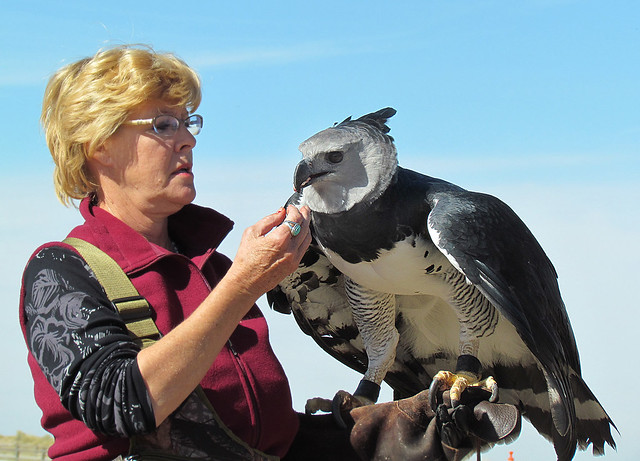
I started wondering about other large raptors used in education programs. Flickr to the rescue:
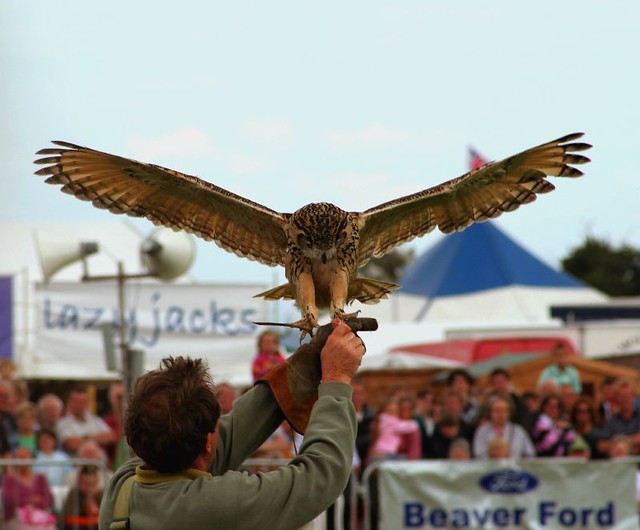
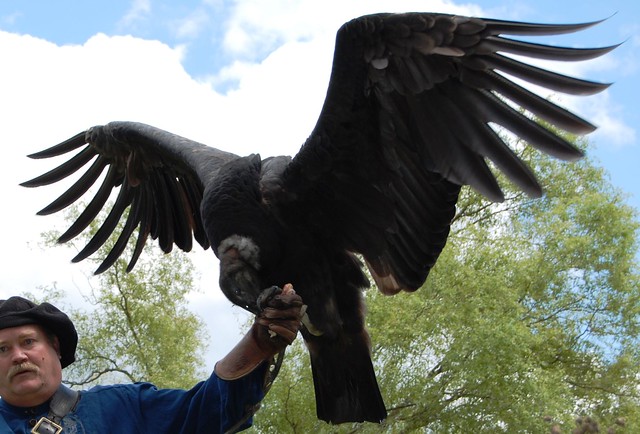
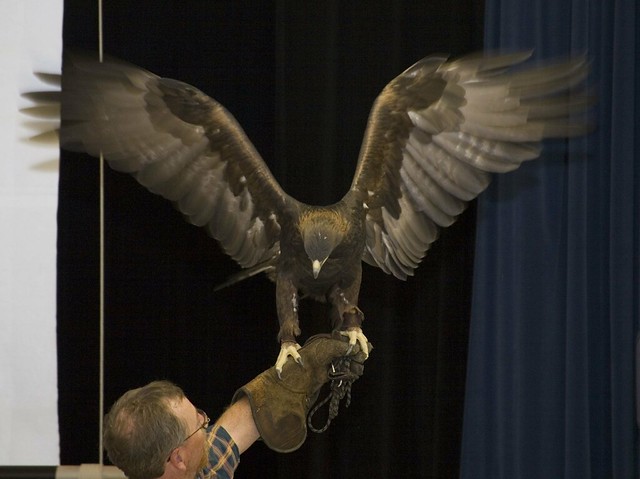
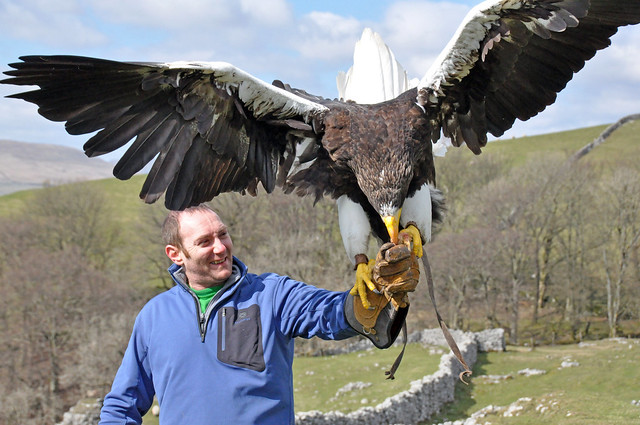
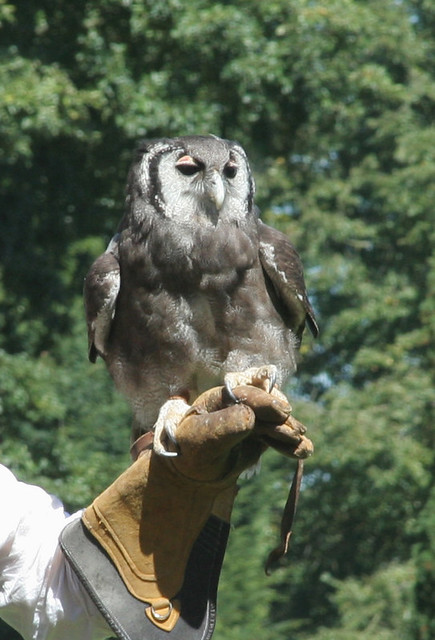
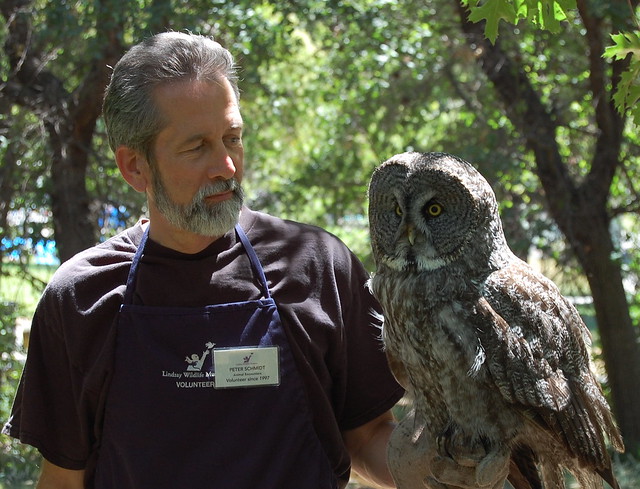

And here is someone with a Martial Eagle on the glove: Martial Eagle [Africa’s largest eagle].
Whoa, right? I need to remember that I’m still very new at this raptor handling business. I want to get to know the birds better, and meet new birds, and increase my handling skills — but patience is key. Maybe someday (far in the future!) I’ll be able to work with birds like these. First, at least one day without losing any blood with Flint Creek’s regulars.
The Burgers’ Zoo in Arnhem, the Netherlands brought its group of 48 African (Jackass) Penguins indoors on Monday due to the cold.
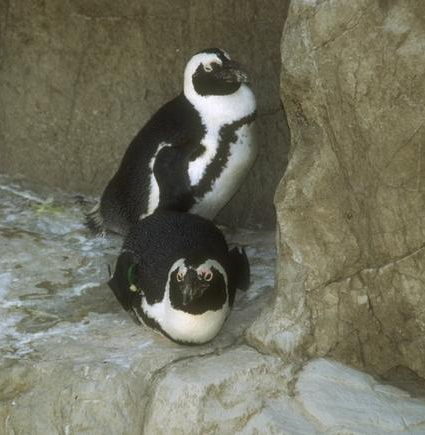
The birds are native to South Africa where they don’t experience cold temperatures as were felt in Holland this week. Temperatures reached -15°C (5° F).
Wednesday morning a White Pelican escaped from the Artis Zoo in Amsterdam. White Pelicans are native to Russia, Eastern Europe and Africa. According to a zoo spokesperson, although Amsterdam is not an ideal habitat for a White Pelican, the bird should be able to survive in the wild.

In 2005 another Pelican escaped from Artis. The bird left the area and settled in Friesland, in the north of the Netherlands. The Pelican thrived at first but later fell into ill health and the zoo was able to recapture it and return it to Artis.
Source: Pelikaan gevlogen uit Artis
Endangered Scarlet Macaws have established a breeding colony on the southern Pacific coast of Costa Rica. The colony consists of macaws born in captivity at the ZooAve Center.
Read more about the program: Endangered parrots born in captivity reproduce in wild.
Last week MFB reported that H5N1 was found in two dead owls at the Rotterdam zoo. On Monday this week an agriculture ministry spokesperson indicated that initial tests show the birds did not in fact die from H5N1. Definitive results will be made public on Friday. Read the full story Two dead owls at Dutch zoo probably not infected with bird flu.
Earlier this week it was revealed that two young owls in the Rotterdam zoo died from the deadly bird flu strain H5N1. As the first zoo in the world to inoculate all of their birds against the flu, the news came as a surprise.
The owls were born in May, after the last round of shots given to the bird population at the zoo.
A low-pathogenic H7 bird flu strain was discovered at a Dutch farm earlier this month, prompting five countries to ban imports of Dutch poultry.
Source: Vogelpest in Blijdorp
A swan found dead at a zoo in the German city of Dresden was carrying the H5N1 virus, it was revealed Friday. The zoo remains open though disinfection procedures have been stepped up. Read the full story German zoo finds H5N1 bird flu in dead swan at Reuters.
Three homosexual stork couples in the Dutch zoo Parc Overloon are raising and caring for baby storks, the zoo announced Friday. There is one pair of lesbian storks while the other two couples are males.
While homosexuality is not uncommon in the animal world, the fact that these couples are raising young together is unusual. Most homosexual behavior in wild animals is limited to mating rituals. All of the storks in Overloon are caring for and feeding their young.
The zoo is not sure how the storks, especially the males, came to have eggs. It is possible the male couples stole eggs from another nest.
A double-crested cormorant in Chicago’s Brookfield Zoo has learned to respond to sound to find his food. The bird, named Oscar, lost his vision due to a virus. Zookeepers worked with the bird, who lacks a sense of smell, in order to insure his survival. Read the story Blind bird plays it by ear in the Chicago Tribune.